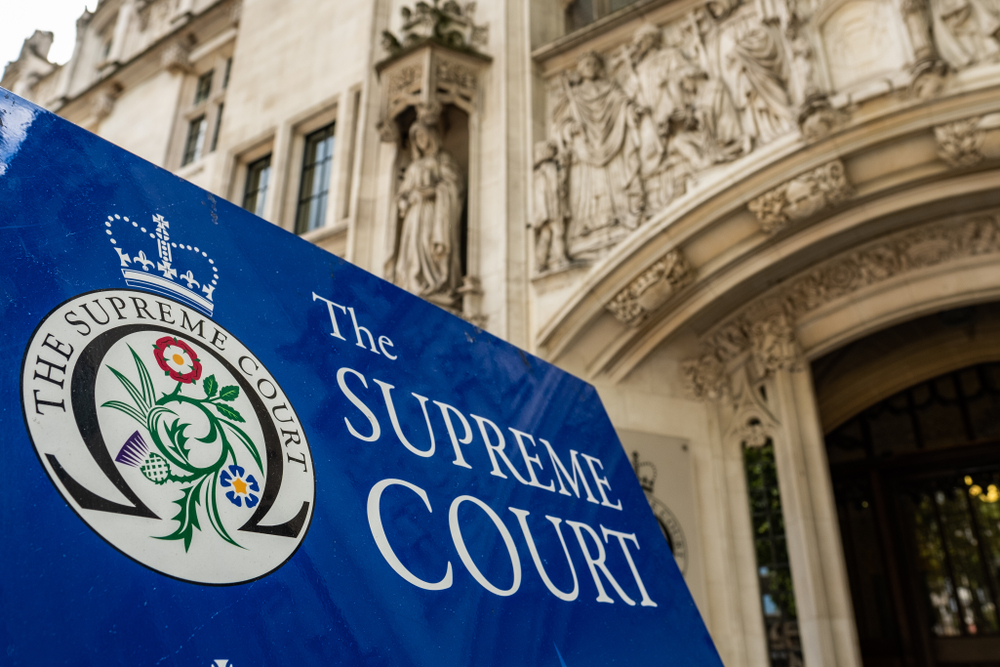In July 2025, the court granted an unusual application to seal the will of a man alleged to have been a former leading member of the IRA. The case of Michael Johnson v Attorney General [2025] EWHC 1943 (Ch) marks the first time the court has sealed the will of someone outside the Royal Family. Judith Swinhoe-Standen and Geoff Kertesz look at whether this decision opens the floodgates for wills to be sealed.
Background
The deceased was allegedly part of an IRA cell whose purpose was to interrogate and, on occasion, murder individuals whom the IRA suspected may have been spying on them and passing information to the British government.
In May 2003, several newspapers published articles identifying the deceased by the codename ‘Stakeknife’, accusing him not only of being a spy but also of being responsible for the torture and murder of dozens of IRA informers.
The deceased denied these allegations, including the identification of him as Stakeknife. As a result of the danger to his life that the allegations and his possible identification posed, he moved to England, changed his name and brought a judicial review against the Northern Irish government. He obtained a judgment acknowledging the risk to Stakeknife’s life.
Nonetheless, the deceased continued to receive death threats throughout the rest of his life. In June 2006, the High Court in Northern Ireland granted an injunction prohibiting the publication of information that might lead to him being identified or his location discovered. That injunction was only discharged upon his death, which the recent judgment commented “demonstrates the interest which still remains” about the deceased. Various civil claims in Northern Ireland involving the deceased’s alleged role in the IRA remained live at the time of his death.
The deceased’s will
The deceased died on 20 March 2023. He had named his then-solicitors as executors of his will, but they renounced their right to act shortly after the deceased’s death.
Michael Johnson, the applicant, was prepared to act as the deceased’s personal representative, provided the will was sealed and the deceased’s true identity not disclosed.
What is sealing a will?
Normally, after being admitted to probate, wills in England and Wales are public documents. Courts have made exceptions to this rule in the past and agreed to “seal” a will or make it private. Until now, though, every one of these exceptions has related to a member of the Royal Family.
What is the precedent for sealing a will?
We wrote previously about Prince Philip’s will being sealed for 90 years and The Guardian’s unsuccessful challenge to that ruling.
As part of that challenge, the courts examined previous case law involving the sealing of wills, all involving the wills of members of the Royal Family. The main reason the courts agreed to seal those wills is that the Royal Family has a unique status, making it appropriate to have a special practice for protecting their private affairs. The courts did not (and did not need to) comment on other circumstances in which a will might need to be sealed.
There is no data available as to how many applications have been made to seal a non-royal will. Until the proceedings relating to Prince Philip’s will, there were no public judgments on the subject. It would seem that all applications on the subject, including Michael Johnson v Attorney General, have been heard in private proceedings not open to the public.
Michael Johnson v Attorney General is the first successful application to seal the will of a person outside the Royal Family.
What are the criteria for sealing a will?
There is little legislation to give direction on when a will can or should be sealed. This application was brought pursuant to the following:
- Section 124 Senior Courts Act 1981: “All original wills and other documents which are under the control of the High Court in the Principal Registry or in any district probate registry shall be deposited and preserved in such places as may be provided for in directions given in accordance with Part 1 of Schedule 2 to the Constitutional Reform Act 2005; and any wills or other documents so deposited shall, subject to the control of the High Court and to probate rules, be open to inspection,” and
- Rule 58 Non-Contentious Probate Rules (“NCPR”): “An original will or other document referred to in section 124 of the [Senior Courts] Act shall not be open to inspection if, in the opinion of a registrar, such inspection would be undesirable or otherwise inappropriate.”
Although it is not specified in the NCPR, it seems to be an unwritten and unspoken rule that if the executors of a member of the Royal Family want the will to be sealed, then their application is likely to be granted.
There is a lack of commentary on the legal rationale for this and a lack of clarity as to why these criteria apply to the Royal Family but not to other people whose estates would be likely to attract public interest.
Why was the deceased’s will sealed?
When deciding whether to seal the deceased’s will, the court had to balance the factors in favour of doing so and those against. The most compelling reasons to seal the will were the risks of serious harm and possible death to those named in the will. The applicant argued that:
- his life would be put at risk if the will and its provisions were open to inspection due to people assuming that he was guilty by association with Stakeknife (whether or not the deceased was Stakeknife),
- his right to life under the European Convention on Human Rights should outweigh the general rule that wills are public documents, and
- in any event, “none of the general factors supporting the will being open to inspection was of any application here and there was no general public interest in anyone seeing the will”. We come back to this further below.
The Attorney General referred to a “balance sheet analysis” of the factors for and against sealing the will that the court had adopted in the Prince Philip proceedings. Many of the Prince Philip factors understandably did not apply to this case but the Attorney General submitted that:
- The factors in favour of publishing the deceased’s will and refusing the application were that (i) “nothing unusual or intimate was expressed” in the will that the deceased might have wished to keep private and therefore “the likely level of public interest in the will itself was minimal” and (ii) the court could “be confident that the sealing of the will would not be assisting fraud”, and
- The factors against publishing the will were that (i) there was no question that the deceased’s wishes would be adversely affected by the will being sealed, and (ii) there was a public interest in upholding the deceased’s interests under the ECHR.
The relevant test under rule 58 NCPR is whether it would be “undesirable or otherwise inappropriate” for the will to be published. The judge decided that this hurdle was met. None of the factors in favour of publication was significant and none outweighed the more compelling reasons to seal the will, the main one of which was that there was a “need to protect the applicant and those named in the will from the real risk of serious physical harm or even death because they might be thought to be guilty by association” with Stakeknife.
The court decided that the deceased’s will should be sealed for 70 years.
Private hearing
Not only was the deceased’s will ultimately sealed, but the application was also heard in private. This was so that counsel could make all of their submissions frankly without having to consider the potential leaking of information by members of the public or journalists who had attended. It involved confidential information, and the court considered that having a public hearing would have “defeated the whole object of the application”.
As a compromise, the judge agreed that the judgment would be public. This was the same compromise as in the Prince Philip case, which was the first time a court had published its judgment regarding sealing a will.
Will this trigger the floodgates opening for applications to seal wills?
The court’s agreement to seal the will of the deceased, a non-royal, is a step towards debunking the impression given by The Guardian in its Prince Philip challenge that there is one rule for the Royal Family and another for everybody else.
Based on the unusual circumstances of the deceased’s life, however, successful applications to seal a will are still likely to be rare. In this case, there was a risk to the lives of those named in the will as they were likely to be viewed as guilty by association. This dynamic is unlikely to be at play in most people’s lives.
Even if unusual, though, the Stakeknife case might cause an uptick in applications to seal wills, as it shows that lay people can succeed in these applications. Importantly for most of us, the court accepted in this case that there was nothing unusual in the will. This comment likely reflects the vast majority of wills, which are often disappointingly dull documents. It does suggest that a decision to seal a will does not depend on how colourful its contents are.
On the flipside, does this mean that there is an argument that no one’s will needs to be published? What is the public interest in publishing a mundane document that reveals personal information about the testator? These questions might be on the cards next time the court considers an application to seal a will.
You can find further information regarding our expertise, experience and team on our Trust and Probate page.
If you require assistance from our team, please contact us.
Subscribe – In order to receive our news straight to your inbox, subscribe here. Our newsletters are sent no more than once a month.







